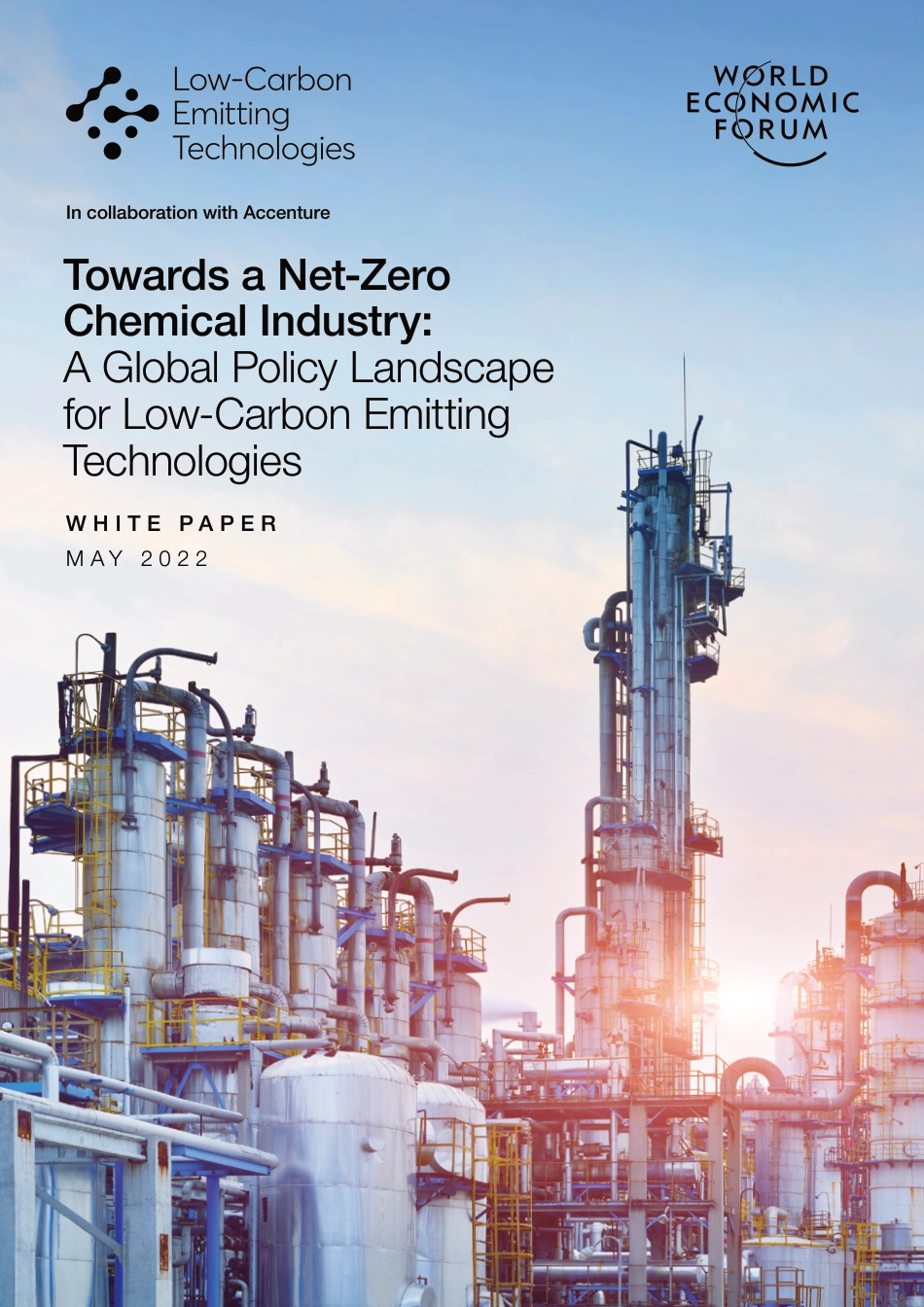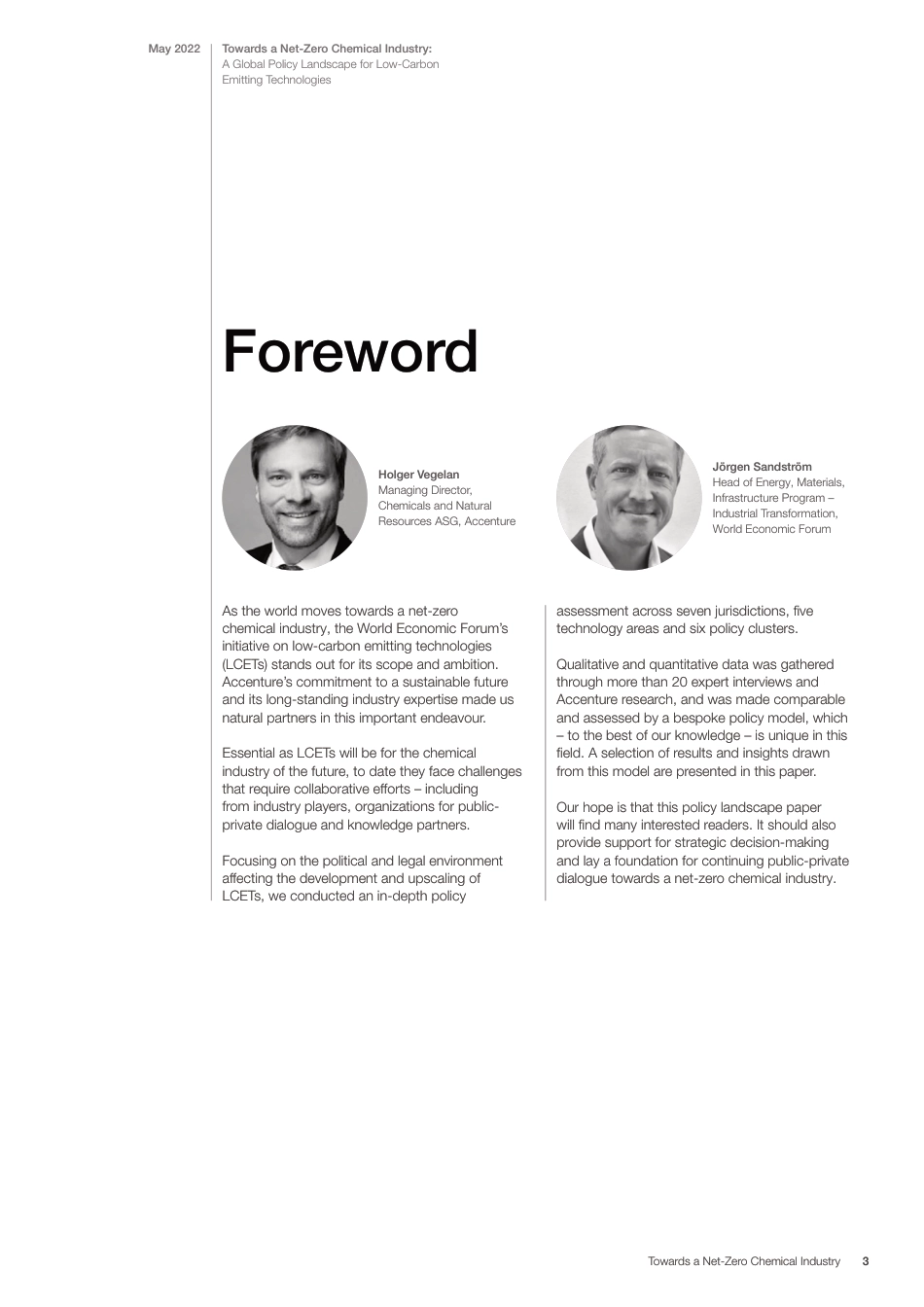Towards a Net-Zero Chemical Industry: A Global Policy Landscape for Low-Carbon Emitting Technologies W H I T E P A P E RM A Y 2 0 2 2In collaboration with AccentureContentsForewordExecutive summary1 Introduction 2 Methodology 3 LCET policy analysis by jurisdictionChinaEuropean UnionJapanSaudi ArabiaUnited Arab EmiratesUnited KingdomUnited States of America4 At a glance: the current state of LCET supportConclusionAppendix: AbbreviationsContributorsAcknowledgementsEndnotes34571011131517192123253031323234Images: Unsplash, Getty Images© 2022 World Economic Forum. All rights reserved. No part of this publication may be reproduced or transmitted in any form or by any means, including photocopying and recording, or by any information storage and retrieval system.Disclaimer This document is published by the World Economic Forum as a contribution to a project, insight area or interaction. The findings, interpretations and conclusions expressed herein are a result of a collaborative process facilitated and endorsed by the World Economic Forum but whose results do not necessarily represent the views of the World Economic Forum, nor the entirety of its Members, Partners or other stakeholders.Towards a Net-Zero Chemical Industry2ForewordAs the world moves towards a net-zero chemical industry, the World Economic Forum’s initiative on low-carbon emitting technologies (LCETs) stands out for its scope and ambition. Accenture’s commitment to a sustainable future and its long-standing industry expertise made us natural partners in this important endeavour.Essential as LCETs will be for the chemical industry of the future, to date they face challenges that require collaborative efforts – including from industry players, organizations for public...



